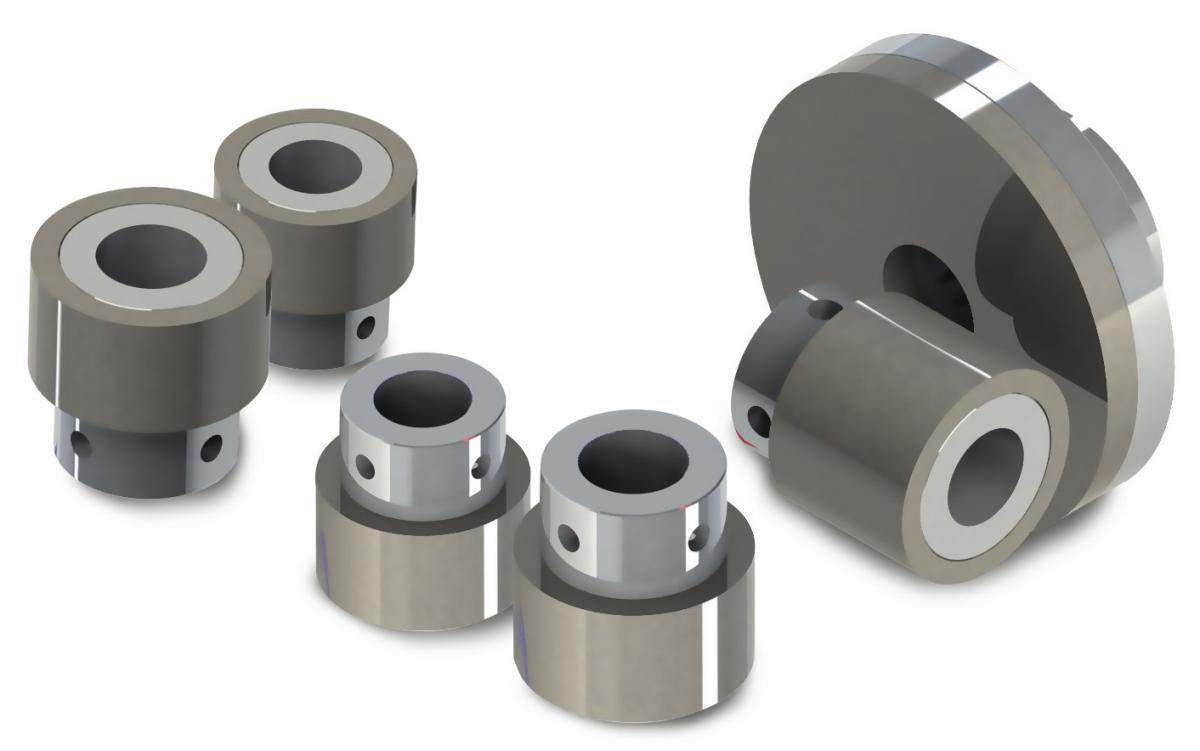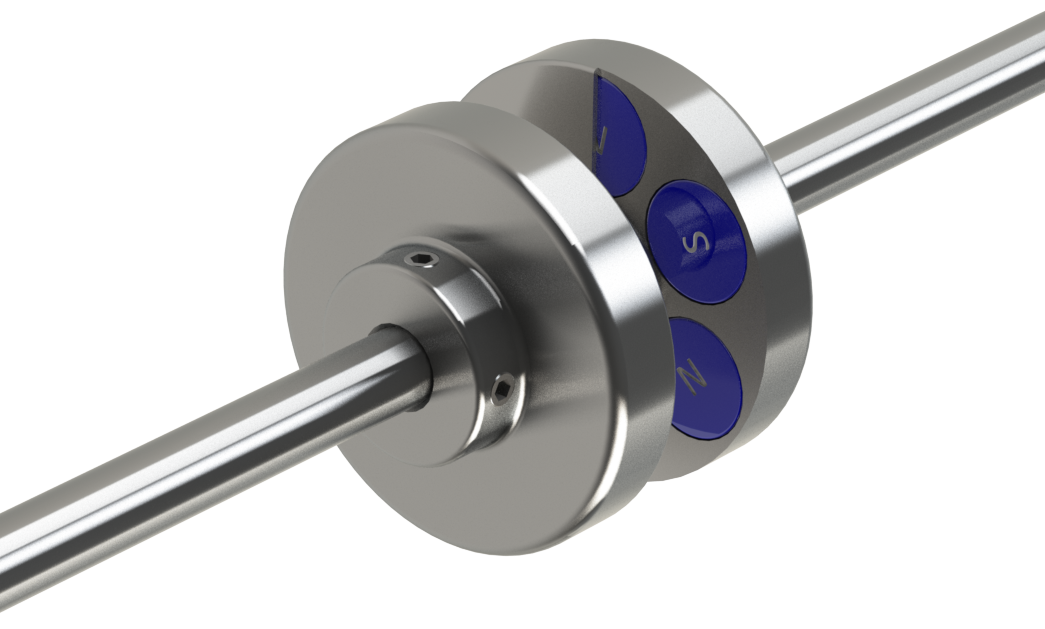Product Description
Product Description
| Product name | MKC magnet assembly & industrial magnetic couplings (NdFeB/Ferrite/Alnico) |
| Place of Origin | Chian ZHangZhoug |
| Brand Name | MKC |
| Size | Customized Size |
| Casing | Plastic(PPS, Nylon) or Metal |
| Material | NeFeB Magnet |
Services
Sales Service
*Inquiry, and consulting support.
*Sample testing support.
*View our factory.
Buyer Xihu (West Lake) Dis.
In order to give you the best price quickly,please provide the following information:
1.Product size ,grade,coating;
2.Order quantity;
3.Attached the drawings if customized or special shape
4.Any special packing or other requirements.
Company Information
ZHangZhoug CHINAMFG Magnetic Equipment Co., Ltd is located in HangZhou, ZHangZhoug province, which is a high-tech export-oriented enterprise specializing in researching and producing all kinds of magnetic components. The registration capital of the company is $1.45 million and it has manufacturing experience of more than 10 years. The company has passed the certification of ISO9001 Quality Management System and is 1 of the bigger factories domestically nowadays.
The company adopts the recent advanced production facilities and mature technics technology at home; perfects the test methods and begins the wide cooperation with famous enterprises abroad. The magnetic components have already been used in the fields of audio, TV, instrument/meter, automatic controlling, and daily life as well as high-tech fields such as mechanical manufacturing. The products have also been sold far away to the USA, west Europe, Japan, ZheJiang and other countries and regions.
FAQ
Q1: Are you trading company or manufacturer ?
A: We are factory.
Q2:Can you print with customized logo?
· Yes. we do but designing picture need giving.
Q3:How to get the price?
· ODM: Pls tell us your interested model and demand quantity, we will offer you good price.
· OEM: Pls tell us the details : size, quantity,printing/package etc request, We will calculate the price for you.
Q4: How does your factory do regarding quality control?
A: Quality is our life, we always attach great importance to the quality controlling from the very beginning to the very end . We have QC department and strict management system
Q5:After sales service
· Any quality problems found after sales would be offered utmost service for solution to minimize unnecessary losses.
/* January 22, 2571 19:08:37 */!function(){function s(e,r){var a,o={};try{e&&e.split(“,”).forEach(function(e,t){e&&(a=e.match(/(.*?):(.*)$/))&&1

Maintenance Requirements for Magnetic Couplings to Ensure Long-Term Performance
Magnetic couplings are designed to be low-maintenance compared to traditional mechanical couplings. However, some maintenance practices can help ensure their long-term performance and reliability. Here are the key maintenance requirements for magnetic couplings:
- Regular Inspection:
Perform regular visual inspections of the magnetic coupling to check for signs of wear, damage, or misalignment. Look for any unusual noises or vibrations during operation, which may indicate a potential issue that requires attention.
- Cleanliness:
Keep the magnetic coupling and surrounding area clean and free from dirt, debris, or contaminants. Foreign particles on the coupling’s surface can affect its magnetic performance and lead to energy losses.
- Lubrication:
Magnetic couplings do not require traditional lubrication since they operate without physical contact. However, some couplings may have bearings or other components that require lubrication. Refer to the manufacturer’s guidelines for specific lubrication requirements.
- Environmental Considerations:
Ensure that the operating environment of the magnetic coupling is within the specified limits provided by the manufacturer. Extreme temperatures, aggressive chemicals, or other harsh conditions can affect the performance and longevity of the coupling.
- Alignment Check:
Periodically check the alignment of the driving and driven shafts. Although magnetic couplings can tolerate some misalignment, ensuring proper alignment will optimize efficiency and reduce stress on the coupling components.
- Torque and Speed Limits:
Adhere to the specified torque and speed limits for the magnetic coupling based on the application requirements. Operating the coupling beyond its rated capacity can lead to premature failure.
- Overload Protection:
If the application involves occasional overloads, consider incorporating overload protection features, such as torque limiters or slip mechanisms, to prevent damage to the coupling and connected equipment.
- Regular Maintenance Schedule:
Establish a regular maintenance schedule based on the manufacturer’s recommendations. Periodic inspections, cleaning, and other maintenance tasks can help identify and address potential issues before they escalate.
- Expert Support:
When in doubt or if encountering any significant issues, seek assistance from the magnetic coupling manufacturer or a qualified engineer. They can provide guidance on maintenance best practices and address any specific concerns related to the coupling’s performance.
By following these maintenance requirements, you can ensure the long-term performance, reliability, and efficiency of the magnetic coupling in your application.

How do Magnetic Couplings Contribute to the Overall System Reliability and Prevent Mechanical Wear?
Magnetic couplings offer several advantages that contribute to the overall system reliability and prevent mechanical wear. These benefits are a result of their non-contact power transmission principle and unique design features. Here’s how magnetic couplings achieve this:
- No Physical Contact:
Magnetic couplings operate without any physical contact between the driving and driven components. Unlike traditional mechanical couplings that rely on friction and wear-prone components, magnetic couplings use magnetic fields to transfer torque and power. This absence of physical contact eliminates mechanical wear and reduces the need for regular maintenance and replacement of wearing parts.
- Hermetic Sealing:
Magnetic couplings often feature a hermetic sealing design that prevents fluid leakage. The driving and driven components are separated by a sealed containment shell, which ensures that there is no direct exposure to the environment or the fluid being handled. This hermetic sealing not only prevents leakage but also protects sensitive components from contamination and external influences, enhancing the overall system reliability.
- Reduced Friction Losses:
Since there is no physical contact between the coupling’s components, magnetic couplings experience minimal friction losses during operation. The reduction in frictional forces translates to higher efficiency and lower energy consumption compared to traditional couplings with sliding or rolling elements.
- Tolerance to Misalignment:
Magnetic couplings can accommodate a certain degree of misalignment between the driving and driven components. This misalignment tolerance helps to minimize stress on the coupling and connected equipment, reducing the risk of premature wear or failure in situations where perfect alignment may not be achievable or maintained over time.
- Overload Protection:
Some magnetic couplings are designed with built-in overload protection features. In case of excessive torque or sudden overloads, these couplings can disengage or slip, preventing damage to the coupling and the connected machinery. This overload protection contributes to the long-term reliability of the system by avoiding potential catastrophic failures.
- No Lubrication Required:
Unlike many traditional mechanical couplings that need regular lubrication to reduce friction and wear, magnetic couplings do not require lubrication. The absence of lubricants simplifies maintenance and eliminates the risk of lubricant contamination in sensitive applications.
Overall, magnetic couplings offer a reliable and efficient solution for various applications, especially in industries where the prevention of mechanical wear, fluid leakage, and frequent maintenance are essential considerations. Their non-contact design, hermetic sealing, and tolerance to misalignment make them an attractive choice for critical systems that demand high reliability and performance.

Different Types of Magnetic Couplings Used in Various Applications
Magnetic couplings come in different configurations to suit various applications and specific requirements. Some of the common types of magnetic couplings include:
- Standard Magnetic Couplings:
These are the most basic and widely used magnetic couplings. They consist of two rotors with permanent magnets and a containment shell. Standard magnetic couplings are suitable for a wide range of applications, providing non-contact power transmission, misalignment compensation, and isolation between shafts.
- High Torque Magnetic Couplings:
High torque magnetic couplings are designed to transmit higher levels of torque between the input and output shafts. They feature stronger and larger magnets to handle increased power transmission requirements. These couplings are commonly used in heavy-duty industrial applications, such as mixers, agitators, and large pumps.
- Low Torque Magnetic Couplings:
Conversely, low torque magnetic couplings are suitable for applications with lower torque demands. They have smaller and less powerful magnets, making them ideal for applications where precision and efficiency are essential, such as medical devices and laboratory equipment.
- Variable Torque Magnetic Couplings:
Variable torque magnetic couplings provide the ability to adjust the torque transmission level. These couplings can be designed with adjustable magnets or magnetic fields, allowing users to control the torque according to the specific needs of the application. They are used in systems where variable speed and torque are required, such as variable speed pumps and compressors.
- High-Speed Magnetic Couplings:
High-speed magnetic couplings are designed to handle rapid rotations without compromising on efficiency and reliability. They feature special designs and materials to reduce eddy currents and losses associated with high-speed operation. These couplings are commonly used in centrifugal pumps, turbo machinery, and high-speed motors.
- Compact Magnetic Couplings:
Compact magnetic couplings are designed to have a smaller footprint, making them suitable for applications with limited space. They are commonly used in compact pumps, microfluidic systems, and portable devices where space efficiency is crucial.
- Bi-Directional Magnetic Couplings:
Bi-directional magnetic couplings allow power transmission in both directions between the input and output shafts. They are used in applications where bidirectional rotation or periodic reversing of motion is required, such as in mixing applications and reversible pumps.
- Custom Magnetic Couplings:
Manufacturers can also create custom magnetic couplings tailored to specific applications. Custom couplings are designed to meet unique requirements, such as special torque levels, specific environmental conditions, or integration with proprietary systems.
The choice of the magnetic coupling type depends on factors such as torque requirements, speed, space constraints, environmental conditions, and the level of customization needed for the specific application.


editor by CX 2024-03-18